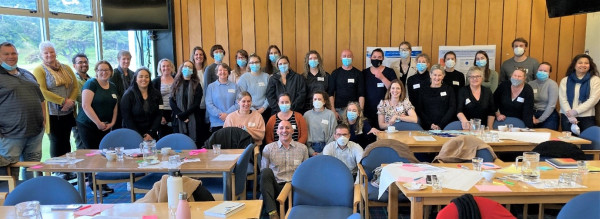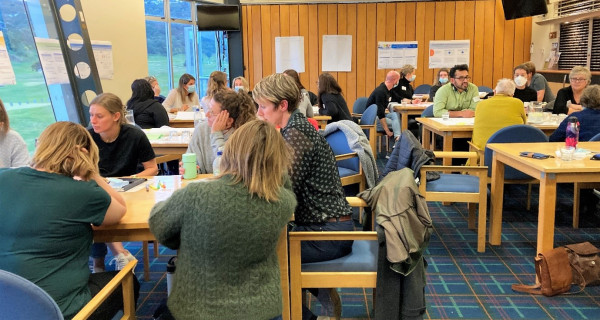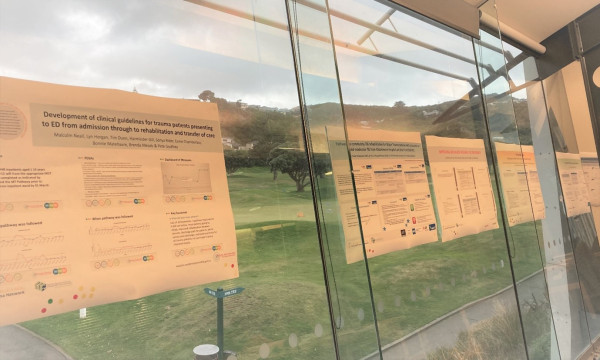Study day increases profile of allied health in trauma rehabilitation and care

Allied health professionals attending the trauma rehabilitation study day held recently in Wellington.
An interactive allied health trauma rehabilitation study day held recently in Wellington brought together 34 professionals from across the country to collaborate on the future of trauma rehabilitation and discuss the importance of using best-practice models of care and high-quality service delivery to support people through their recovery.
Attendees included physiotherapists, occupational therapists, social workers, a speech and language therapist, a psychologist and managers.
The sessions involved facilitated discussions on:
- allied health roles in trauma systems
- where the opportunities in trauma rehabilitation are
- building a national allied health network.

Collaboration in action at the study day.
During the day, Kat Quick, clinical lead for the Health Quality & Safety Commission’s (the Commission’s) national trauma rehabilitation project, and Ian Civil, clinical lead for the National Trauma Network, shared the wider goals of fostering a national trauma system and the achievements of the Commission in this area over the past two years.
Dr Lara Kimmel, a senior physiotherapist from the Alfred Hospital in Melbourne, shared her research on providing early and intensive acute hospital physiotherapy and challenged perspectives on where best to provide optimal rehabilitation (home vs inpatient services) for the orthopaedic trauma patient.
Professor Belinda Gabbe, head of the prehospital, emergency and trauma research unit in the school of public health and preventative medicine at Monash University in Melbourne, presented on her work in the ‘Better functional outcomes in trauma’ study (BEFIT). This exciting research shows that, when people receive optimal and intensive allied health input early after injury, there is both a positive impact on patient recovery and also economic benefits for hospital services.
Representatives from ACC gave an update on new clinical pathways within concussion services resulting from its primary care pilot, secondary care proof-of-concept pilot and hospital-based direct referral pilot. They also presented on their work on improving outcomes for Māori, including the roll-out of rongoā services, the Hāpai project (providing culturally responsive engagement), raranga (establishing culturally safe approaches) and kaupapa Māori commissioning.
The Commission team displayed and presented posters from the trauma rehabilitation collaborative projects that were completed in June 2022. Some project team members were also present and had the opportunity to showcase their important work.

Posters from the trauma rehabilitation collaborative projects completed in June 2022.
The day ended with Dr David Knight, the Commission’s clinical lead for serious traumatic brain injury project, discussing the scoping findings and direction of this work programme. He specifically focused on the challenge of providing consistent and accurate screening for brain injury in people who have experienced major trauma.
The study day was the first of its kind and received overwhelmingly positive feedback. There was a clear drive among attendees towards increasing the profile of allied health in trauma care and creating a national group to help improve services and incorporate best-practice care delivery.
The Commission and Network team are now considering how to progress the outcomes from the study day within the context of the broader trauma rehabilitation programme. They recognise the importance of the allied health workforce in the ongoing vision of developing a contemporary trauma system in Aotearoa New Zealand.
